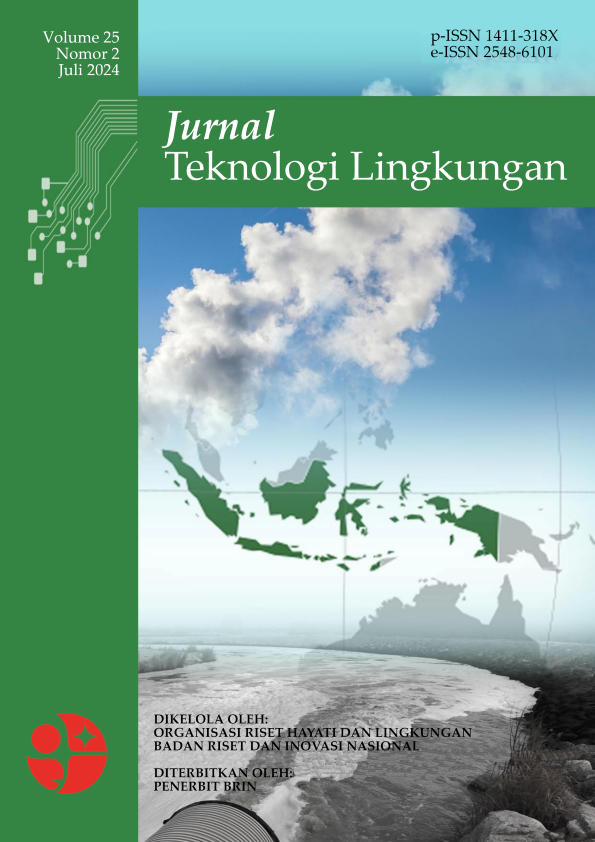Karakterisasi Perbandingan Bahan Baku Sekam Padi dan Campuran Sekam Padi-Ampas Tebu terhadap Kualitas Briket
Main Article Content
Abstract
Fossil fuels cause several problems, such as energy scarcity and air pollution. Charcoal briquettes are sought by People around the world as an alternative to fossil fuels due to the high calorific value of briquettes. This phenomenon brings the briquettes prospect that is applied as solid fuel. This research aims to determine the effect of biomass feeds on the quality of briquettes. The research stages: carbonization at the temperature of 300 ºC for 1 hour with raw materials such as pure rice husk (RH) and a mixture of rice husk and sugarcane bagasse (RH:SB) with ratios of 1, 1.5 and 2. In the casting process, charcoal RH and RH:SB were varied with durian seed flour adhesive (20% weight of feed). The results of the raw material values for pure RH and RH:SB mixture are (3,505; 3,043; 2,733 cal/gr) and (5,094; 4,161; 4,283 cal/gr), which meet the regulation ESDM (4000-5000 kal/gr) for all RH: SB samples. The improvements in briquette quality are also found in the water content parameters of the briquettes, the water content of pure RH and RH: SB mixture is (10.44%, 10.15%, 6.6%) and (5.59%, 5.57%, 5.2%), where all RH:SB briquette samples comply with SNI (<8%). The content of ash, volatile matter and bound carbon still do not meet standards. It is recommended to vary the temperature to achieve the optimal temperature in order to obtain ash content, volatile matter and fixed carbon, which can meet the standards.
ABSTRAK
Bahan bakar fosil menimbulkan beberapa permasalahan seperti kelangkaan energi dan polusi udara. Briket arang mulai diminati oleh masyarakat di dunia sebagai alternatif pengganti bahan bakar fosil dikarenakan nilai kalor briket yang tinggi. Karena itu briket memiliki prospek untuk diaplikasikan sebagai bahan bakar padat. Tujuan dari penelitian ini adalah mengetahui pengaruh bahan baku biomassa terhadap kualitas briket. Tahapan penelitian mencakup perlakuan karbonisasi pada suhu 300 ºC selama 1 jam pada bahan baku pure sekam padi (SP) dan campuran sekam padi dan ampas tebu (SP:AT) dengan rasio 1; 1,5; dan 2. Pada proses pencetakan, masing-masing arang divariasikan terhadap perekat tepung biji durian (20% berat dari feed). Hasil nilai bahan baku SP dan campuran SP:AT adalah (3.505; 3.043; 2.733 kal/gr) dan (5.094; 4.161; 4.283 kal/gr) yang telah memenuhi Permen ESDM (4000-5000 kal/gr) pada sampel SP:AT. Perbaikan kualitas briket juga terdapat pada parameter kandungan air pada briket, kadar air pure SP adalah 10,44%; 10,15%; 6,6 %, sedangkan campuran SP:AT adalah 5,59%; 5,57%; 5,2%, di mana seluruh sampel briket SP:AT telah sesuai dengan SNI (<8%). Parameter kadar abu, zat terbang, dan karbon terikat masih belum memenuhi standar sehingga direkomendasikan untuk melakukan variasi temperatur agar mendapatkan temperatur optimal agar kadar abu, zat terbang, dan karbon terikat dapat memenuhi standar.
Article Details

This work is licensed under a Creative Commons Attribution-ShareAlike 4.0 International License.

